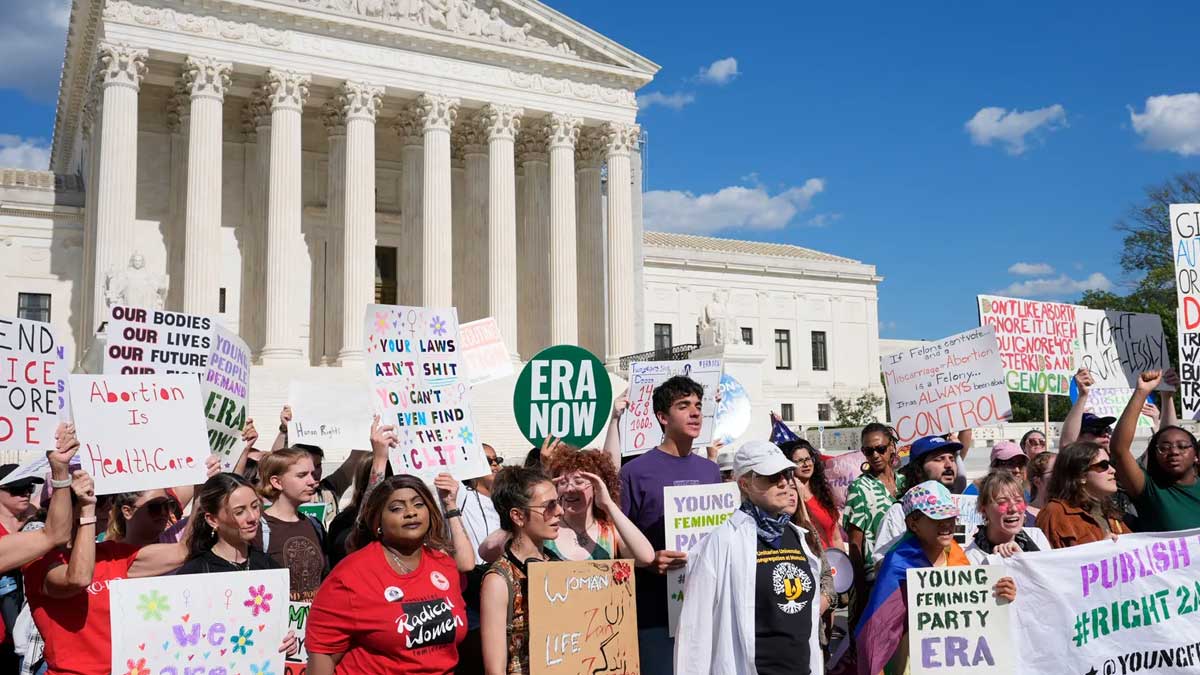- Home
- Billionaires
- Investing Newsletters
- 193CC 1000
- Article Layout 2
- Article Layout 3
- Article Layout 4
- Article Layout 5
- Article Layout 6
- Article Layout 7
- Article Layout 8
- Article Layout 9
- Article Layout 10
- Article Layout 11
- Article Layout 12
- Article Layout 13
- Article Layout 14
- Article Sidebar
- Post Format
- pages
- Archive Layouts
- Post Gallery
- Post Video Background
- Post Review
- Sponsored Post
- Leadership
- Business
- Money
- Small Business
- Innovation
- Shop
Recent Posts
Supreme Court Upholds Emergency Abortion Access in Idaho

The Supreme Court’s recent decision in Moyle v. U.S. marks a pivotal moment in the ongoing debate over abortion rights in Idaho. The case revolved around Idaho’s stringent abortion laws, particularly its prohibition on emergency abortions that are not deemed life-threatening, despite federal mandates under the Emergency Medical Treatment and Labor Act (EMTALA). This federal law requires hospitals participating in Medicare to provide stabilizing emergency care regardless of a patient’s ability to pay or insurance status.
The Court’s ruling, delivered in an unsigned opinion, dismissed the case as ‘improvidently granted,’ indicating a reversal of its earlier decision to take up the challenge. This dismissal also lifted a temporary stay that had allowed Idaho to enforce its abortion restrictions pending legal proceedings. Justices Elena Kagan and Sonia Sotomayor concurred with the decision, criticizing Idaho’s arguments related to EMTALA compliance but ultimately agreeing with the dismissal. Conversely, Justice Amy Coney Barrett, along with Chief Justice John Roberts and Justice Brett Kavanaugh, supported the dismissal due to substantial changes in the case since its initial consideration.
In a dissenting opinion, Justice Ketanji Brown Jackson argued against dismissing the case entirely, asserting that the Court’s intervention had already disrupted the legal process and emphasizing the need to address the core legal issues at stake.
This decision comes against the backdrop of broader implications for reproductive healthcare in the United States, particularly in states with similar abortion restrictions. The ruling raises questions about the enforcement of federal healthcare laws versus state-level regulations, highlighting ongoing tensions between federal mandates for emergency medical care and state laws restricting abortion access.
The case’s dismissal is expected to have ripple effects beyond Idaho, potentially influencing similar legal battles in other states with restrictive abortion laws. Advocates and healthcare experts are closely monitoring these developments, concerned about the precedent set regarding emergency medical care and its implications for reproductive rights and healthcare policy nationwide.
Recent Posts
Categories
- 193cc Digital Assets2
- 5G1
- Aerospace & Defense46
- AI37
- Arts3
- Banking & Insurance11
- Big Data3
- Billionaires449
- Boats & Planes1
- Business328
- Careers13
- Cars & Bikes76
- CEO Network1
- CFO Network17
- CHRO Network1
- CIO Network1
- Cloud10
- CMO Network18
- Commercial Real Estate7
- Consultant1
- Consumer Tech180
- CxO1
- Cybersecurity68
- Dining1
- Diversity, Equity & Inclusion4
- Education7
- Energy8
- Enterprise Tech29
- Events11
- Fintech1
- Food & Drink2
- Franchises1
- Freelance1
- Future Of Work2
- Games141
- GIG1
- Healthcare78
- Hollywood & Entertainment186
- Houses1
- Innovation42
- Investing2
- Investing Newsletters4
- Leadership65
- Lifestyle11
- Manufacturing1
- Markets20
- Media193
- Mobile phone1
- Money13
- Personal Finance2
- Policy567
- Real Estate1
- Research6
- Retail1
- Retirement1
- Small Business1
- SportsMoney33
- Style & Beauty1
- Success Income1
- Taxes2
- Travel10
- Uncategorized8
- Vices1
- Watches & Jewelry2
- world's billionaires418
Related Articles
Trump Moves $4B Stake in Truth Social Parent, Stock Drops 6%
Donald Trump recently transferred his 57% stake in Trump Media & Technology...
By 193cc Agency CouncilDecember 20, 2024House Rejects Trump-Backed Funding Bill, Shutdown Looms
The U.S. House of Representatives rejected a new government funding bill on...
By 193cc Agency CouncilDecember 20, 2024Trump Named Time’s Person of the Year for Second Time
On Thursday, Time magazine honored Donald Trump as its “Person of the...
By 193cc Agency CouncilDecember 12, 2024Meta Donates $1 Million to Trump’s Inaugural Fund
Meta, the parent company of Facebook and Instagram, has confirmed a $1...
By 193cc Agency CouncilDecember 12, 2024















Leave a comment